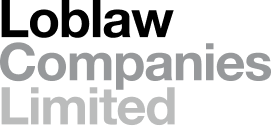Our position
At Loblaw, our purpose is to help Canadians Live Life Well®. We recognize our responsibility to respect and protect the human rights of all people who support and intersect with our business, and we do not tolerate abuse, discrimination or harassment in any form.
Through our formal policies, codes of conduct for our colleagues and suppliers, comprehensive compliance standards and a robust governance framework, we strive to uphold the rights of our customers, colleagues and employees, as well as the many workers across our supply chain.
Our commitment to protecting human rights is founded on our strong belief in doing what is right, and we pledge to create a safe and inclusive experience across our value chain for the many customers who choose our products and services.
Our approach
We uphold high standards and expectations for respecting human rights in our own operations and throughout our domestic and international supply chain, which are detailed in our Supply Chain Compliance Program.
In November 2020, Loblaw issued a statement outlining our position on human rights in relation to the United Nations Guiding Principles (UNGPs) on Business and Human Rights. Since then, we have built on feedback and key learnings from our colleagues, customers, internal and external stakeholders, and investors and we are accelerating the review and improvement of our approach to human rights.
In 2022 we engaged ELEVATE, a third-party expert and leader in sustainability and supply chain services, on several workstreams related to human rights and responsible sourcing. As part of this engagement, we asked ELEVATE to conduct Human Rights Due Diligence (HRDD) to assess our procedures and policies, across the company’s enterprise.
Our Assessment
In partnership with ELEVATE, a multi-step process (including, current state assessment, gap analysis, supply chain risk assessment and stakeholder engagement) was used to identify opportunities to strengthen policies and processes across the enterprise, including our international supply chain. Through this process, management aligned to five (5) inherent Salient Risks – (1) forced labour; (2) child labour; (3) discrimination; harassment, and abuse; (4) livelihoods; and (5) occupational health and safety, which inform the ongoing work Loblaw will do on human rights and responsible sourcing.
Salient Risks are defined as those risks having the highest potential impact to people’s human rights as a result of the company’s activities or business relationships. As per UNGP guidance, salient risks do not factor in mitigating steps that we as a company may be taking on specific issues; instead, they focus on issues likely to be encountered due to the nature of our business.
Below is a brief description of the five (5) Salient Risks:
1. Forced labour: Forced labour refers to situations in which persons are coerced to work using violence or intimidation, or by more subtle means such as accumulated debt, retention of identity papers, or threats of denunciation to immigration authorities.
2. Child labour: Child labour refers to work that is mentally, physically, socially, or morally dangerous and harmful to children; and/or interferes with their schooling by: depriving them of the opportunity to attend school; obliging them to leave school prematurely or requiring them to attempt to combine school attendance with excessively long and difficult work. The International Labour Organization Convention establishes minimum age requirements for many jurisdictions, which can be varied by local regulations.
3. Discrimination, Harassment, and Abuse: Unequal treatment, directly or indirectly, on various grounds including race, ethnicity, sex, language, religion, political or other opinion, national or social origin, property, and birth or other status (such as sexual orientation or health status, for example having HIV/AIDS). Harassment and abuse include but are not limited to violence; corporal punishment; harsh or degrading treatment; sexual or physical harassment; mental, physical, verbal, or sexual abuse.
4. Livelihoods: This includes conditions related to maximum working hours, days off, fair wages, job security, social security, and benefits. The right to an adequate standard of living requires, at a minimum, that everyone shall enjoy the right to necessary subsistence: adequate food and nutrition, clothing, housing, and necessary conditions of care when required.
5. Occupational Health and Safety (OHS): Refers to the protection of workers from exposure to short- and long-term risks at work to reduce workplace injuries and illness and promote worker wellbeing.
For each of the identified Salient Risks, Loblaw recognizes that there are inherently different risk profiles for domestic, migrant, and international workers. In keeping with the prescribed UNDG process, Loblaw assessed each identified risk on its face value, for instance without the distinction of the very different rules, regulations and working conditions of a retail store in our home market Canada compared to a factory or operation on a different continent. We have assessed these salient risks as they relate to our business and have developed and will continue to implement fit-forpurpose risk mitigation strategies where applicable. These strategies will take into account appropriate distinctions between individuals working in our own operations and those within our global supply chain.
Human Rights Impact Assessment – Broccoli and Cauliflower
Loblaw engaged Ergon Associates (Ergon), a leading labour and human rights firm, to complete a Human Rights Impact Assessment (HRIA) in Loblaw’s broccoli and cauliflower supply chain originating from Mexico, the US, and Canada.
This initiative was undertaken to further our commitment to transparency and supply chain traceability. HRIAs are specialist studies designed to support an organization’s due diligence efforts in relation to international standards and frameworks, including the UNGPs on Business and Human Rights and the Organization for Economic Cooperation and Development (OECD) Guidelines on Multinational Enterprises. An HRIA is a sector-wide study, and the process is not an audit or evaluation of specific suppliers or sub-suppliers.
As a result of the assessment, Ergon produced a detailed report, which includes the methodology, salient impact findings, root causes and recommendations. It is important to note that salient impact findings are based on risks that inherent to the agricultural industry as a whole and were not necessarily identified during site visits to suppliers in Loblaw’s supply chain.
This assessment identified practical recommendations for Loblaw to prevent, mitigate, and address potential negative human rights impacts within its supply chain. The recommendations focus on areas where Loblaw has direct influence and can effect change. Loblaw will use the recommendations to develop specific action plans that are applicable and relevant for its organization.
Supply Chain Compliance Program
Supplier Code of Conduct
Loblaw’s supplier relationships are guided by the Loblaw Supplier Code of Conduct. This Supplier Code sets minimum expectations and guidelines with respect to responsible sourcing including our commitments to human rights, the environment, health and safety, regulatory compliance, business ethics and the development of a diverse and sustainable supply chain. We expect our Suppliers to communicate these expectations to their contractors, agents, sub-contractors and sub-agents, including any labour agencies, who are engaged to assist with providing goods or performing services for Loblaw.
Facility Compliance Audits
Our audits and audit compliance program are designed to confirm that suppliers providing goods to Loblaw uphold our Supplier Code. Below we provide details with respect to our audit compliance program.
Prior to commencing sourcing activities, Loblaw must audit factories, processing facilities, plants, farms, packing or other facilities outside of Canada and the U.S. that are going to produce, process, manufacture, grow, raise, package or pack (i) control brand products sourced by Loblaw, or (ii) products for which Loblaw is the Importer of Record (IOR). Once sourcing has begun, an audit of the working conditions of the facility must be conducted annually, and a fire, structural and safety assessment (if applicable) must be conducted every three years. In addition, facilities located in designated high-risk locations such as Southeast Asia, require a fire, structural and safety assessment to be conducted prior to Loblaw beginning to source from the facility.
These audits reinforce worker rights and safety by conducting reviews and assessments to ensure that, among other things:
labour is voluntary;
workers are properly compensated;
workers are not exploited;
facilities comply with employment standards (including minimum age);
working hours are consistent with local laws and standards; and
facilities meet health and safety laws and regulations.
Our facility audit compliance team is comprised of a core team in Toronto, supplemented by in-market teams in China, Bangladesh, Thailand, Vietnam, Cambodia, and India. Facility compliance audits are conducted by third-party experts using a best-practice audit framework. Together this team ensures that workplace condition assessments are conducted to our standards, and that our products are sourced from approved factories.
Initial and annual facility compliance audits are typically conducted by third-party experts using a best-practice audit framework. In some cases, where suppliers provide us with facility compliance audits using an alternative acceptable global framework, the core team conducts an equivalency review to ensure the audit meets our standards. The in-market audit teams also provide in person follow-up with remediation audits, additional information audits and verification of corrective actions.
If a facility audit identifies a compliance issue such as child labour, forced or bonded labour, or life-threatening health and safety situations, we suspend our relationship with that facility (and/or supplier). Less severe infractions can also result in suspension. In both cases, we will work with suppliers to determine whether satisfactory remediation of the compliance issue is possible. We will terminate relationships with suppliers who are unable or unwilling to remediate non-compliance to our satisfaction within a reasonable timeframe.
We continuously review the supplier monitoring program to determine if an expanded scope of the program is necessary and as we are made aware of new considerations as they relate to our supply chain.




